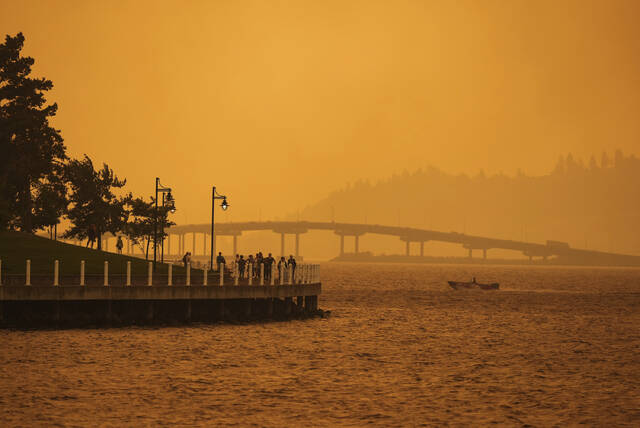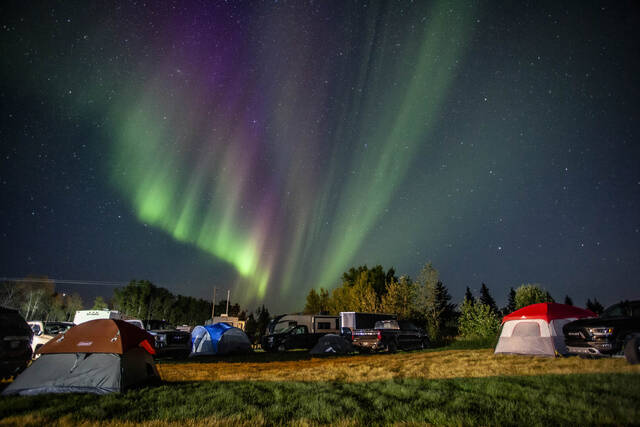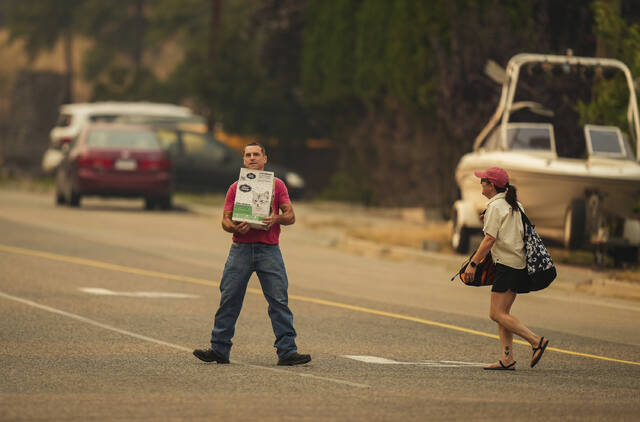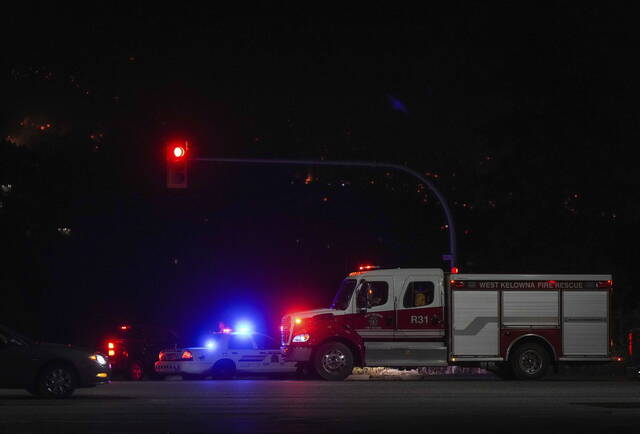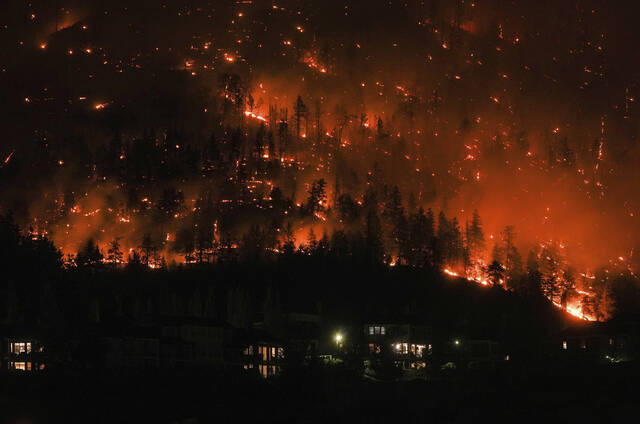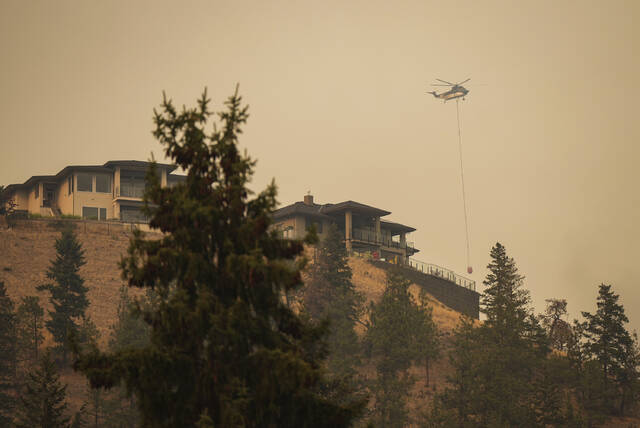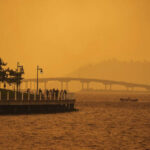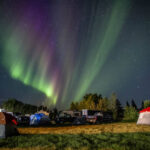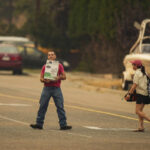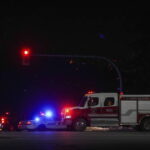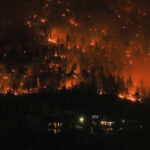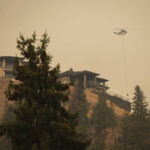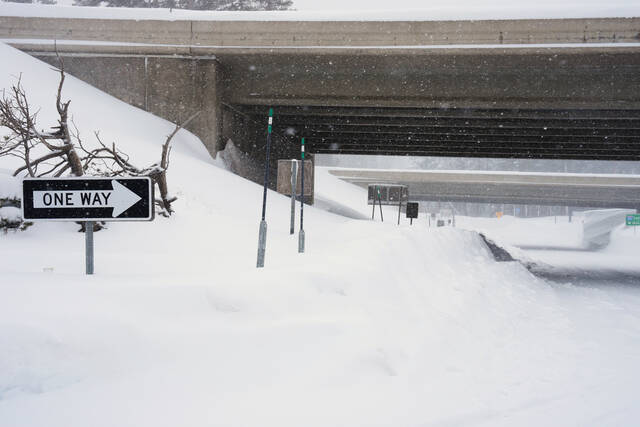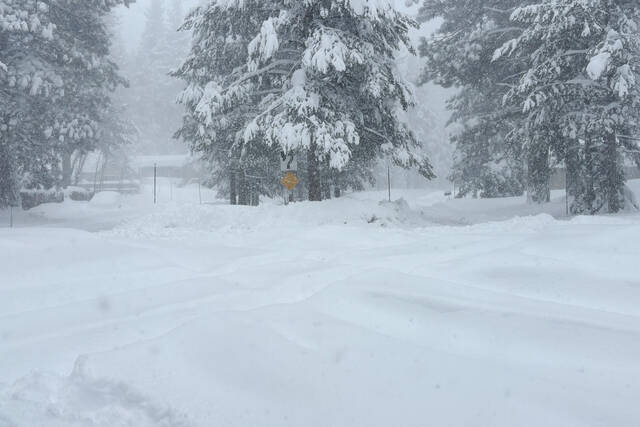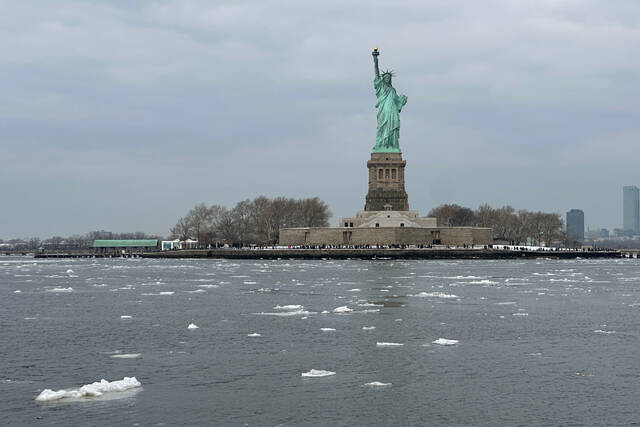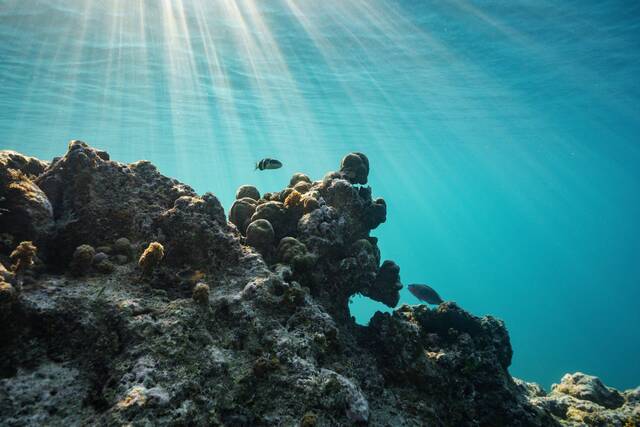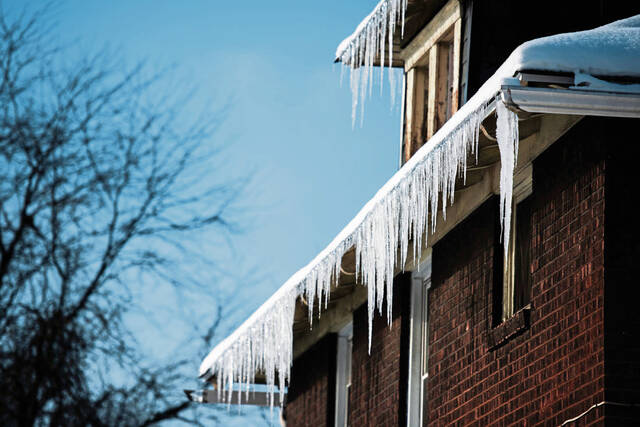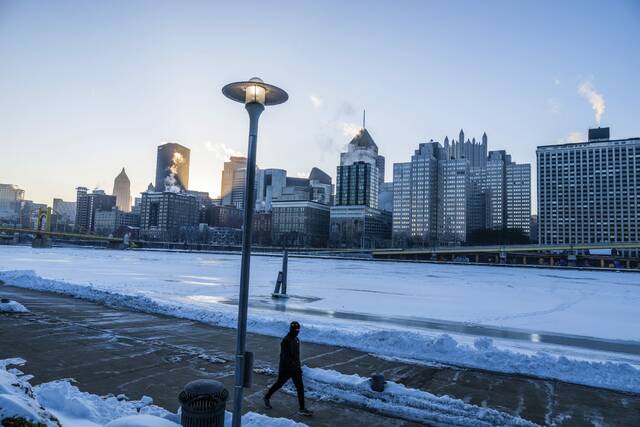VANCOUVER, British Columbia — Firefighters battling wildfires in Canada on Saturday sought to stop flames that swept through the West Kelowna suburbs in British Columbia, forced the evacuation of a university campus and fouled the air with thick smoke.
The entire province was under a state of emergency as firefighters waged an epic battle, and firefighting reinforcements and calmer weather provided hope for a reprieve during Canada’s worst fire season on record.
Elsewhere, a small amount of rain fell overnight — about 4 millimeters — and humidity was high enough to dampen fire activity, providing some measure of help for weary firefighters in the Northwest Territories, Mike Westwick, wildfire information officer, said Saturday.
No deaths were reported but Westwick said a “significant number” of structures had been destroyed.
Yellowknife, the capital of the Northwest Territories, was a virtual ghost town after nearly all of the city’s 20,000 residents fled under evacuation order.
Charlotte Morritt was among those who left on Thursday, reaching that decision because of the unbearable smoke that had become unhealthy for her 4-month-old son.
Morritt, a journalist with the Aboriginal Peoples Television Network, and her son took an evacuation flight some 1,500 kilometers (950 miles) to safety in Yukon province, while her partner stayed behind to monitor their property and help create firebreaks and fight fires.
“We knew it was only a matter of time,” said Morritt, who had been monitoring media updates and satellite images of the approaching wildfires.
Authorities were concerned that Yellowknife’s only escape route could be cut off by the fires. About 2,600 people remained in the city, including emergency teams, firefighters, utility workers and police officers, along with residents who refused to leave.
The fires were unnerving for residents across the region, with plumes of smoke visible by day and an eerie orange nighttime glow.
Prime Minister Justin Trudeau, who met Friday with some of the Yellowknife evacuees in Edmonton, Alberta, on Saturday shared on X, the social media platform formerly known as Twitter: “We’ve got your back.”
Trudeau praised firefighters, police, military personnel, the Red Cross and others who responded to the fires and other natural disasters this summer.
“Terrible loss, increased extreme weather events. And all through it, we’ve seen Canadians step up,” he told reporters in Edmonton.
Canada has seen a record number of wildfires this year that have caused choking smoke in parts of the U.S. All told, there have been more than 5,700 fires, which have burned more than 137,000 square kilometers (53,000 square miles) from one end of Canada to the other, according to the Canadian Interagency Forest Fire Centre.
Video shot by Todd Ramsay north of Kelowna captured the moment of alarm when nearby trees caught fire, and his family was forced to flee in traffic gridlocked by emergency vehicles and people trying to escape.
The University of British Columbia Okanagan campus in Kelowna, which had fewer than its usual 11,000 students during a summer session, received the order to evacuate Friday afternoon. The order remained in effect Saturday.
West Kelowna Fire Chief Jason Brolund told a news conference Friday that the fire “was exponentially worse than we expected.”
But Saturday, he said, brought a reprieve: 200 additional firefighters along with calmer and cooler weather conditions.
In Yellowknife, air tankers dropped water and fire retardant on the flames. A 10-kilometer (6-mile) fire line was dug, and firefighters deployed 20 kilometers (12 miles) of hose and a plethora of pumps in the fight to keep the fire at bay.
About 19,000 people had left Yellowknife in under 48 hours, with about 15,000 driving out in convoys and 3,800 leaving on emergency flights, officials said. The last 39 hospital patients were flown out Friday night on a Canadian Forces plane, officials said.
By Saturday, the streets were nearly empty and stores and gas stations were shuttered. “It’s a ghost town,” said Kieron Testart, who had gone door-to-door in the nearby First Nation communities of Dettah and NDilo to check on people Friday.
Heritage Minister Pascale St. Onge, meanwhile, urged Meta to lift its “reckless” ban on users sharing local news on its Facebook and Instagram social media platforms. Meta said it enabled its “safety check” program for users to let others know they were safe, and was encouraging users to access information from official government agencies, emergency services and non-governmental organizations.


